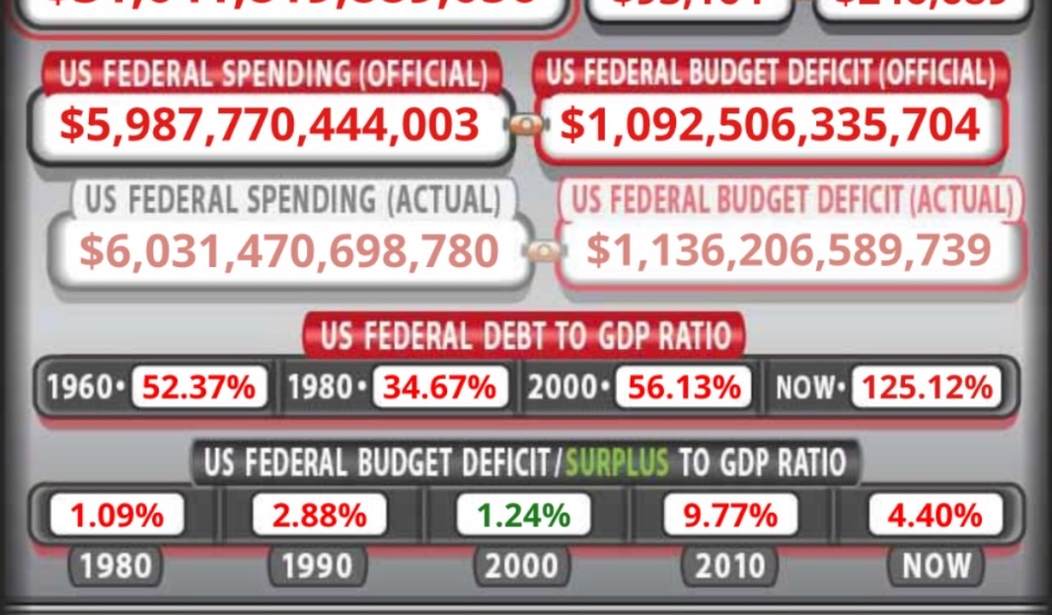The Treasury Department released data showing that the national debt passed $31 trillion. Rep. Chip Roy put that number in perspective.
It would take you 1 million years to count to 31 trillion if you set out to do so “one Mississippi.” It was $21 trillion just 5 years ago. Think about that. #StandUpForAmerica https://t.co/Z9MbiEWWE5
— Chip Roy (@chiproytx) October 4, 2022
— Jr Ogalstad 🇺🇸🥇🖖🏼 (@JOgalstad) October 5, 2022
Certainly, the pandemic accounted for some of the increase in the national debt. In 2020 alone, the debt increased by a trillion dollars — twice. The federal government spent $3.1 trillion more than it got in 2020, and it spent $2.8 trillion more than it received in 2021.
Related: Biden Scales Back Student Loan Debt Relief Because He Knows the Plan Is Illegal
After the massive tax increase in the Inflation Reduction Act (sic), the budget deficit will still be close to a trillion dollars in 2022.
“You know, Republicans talk about being fiscally responsible,” Biden said in September. “Last year, I reduced the deficit $350 billion. You know how much this year, not counting the Medicaid changes? One trillion seven hundred billion dollars. So, I don’t want to hear it from Republicans about fiscal responsibility.”
Republicans have been arguing for several weeks that voters are ready for reduced federal spending, which they say is a major contributor to higher inflation levels, and they have also said this issue is a reason to give the GOP control of Congress in the midterm elections.
Reducing a $2.8 trillion deficit by $350 billion is not much of a magic trick when you consider the economy reopened during that period, and almost-normal economic activity accounted for most of the increase in revenue.
But Biden went ahead and signed another trillion dollar bill — the Inflation Reduction Act (sic) — that was only partially offset by a massive tax increase.
In 2022, the budget deficit is expected to be about $1 trillion. Some experts believe $1 trillion per year in new debt is the floor given growth in entitlement spending as well as new spending priorities set by Congress this year. Those priorities include the health and environmental policy bill known as the Inflation Reduction Act and assisting Ukraine in its war with Russia.
Spending on climate change, the war in Ukraine, and the rest of discretionary spending is a drop in the bucket as far as the national debt is concerned. Excluding defense spending, discretionary spending amounts to only about 15% of the budget.
The overwhelming number of dollars added to the national debt every year are in the form of mandatory spending on entitlement programs. As long as Congress refuses to deal with entitlements, the national debt will continue to soar.
At the moment, there is no price to pay for growing the national debt. It’s just an impossibly large number. But with a possible debt crisis looming in Europe and the possibility of an expanded war in Ukraine, that number of $31 trillion may be about to get very real.










Join the conversation as a VIP Member